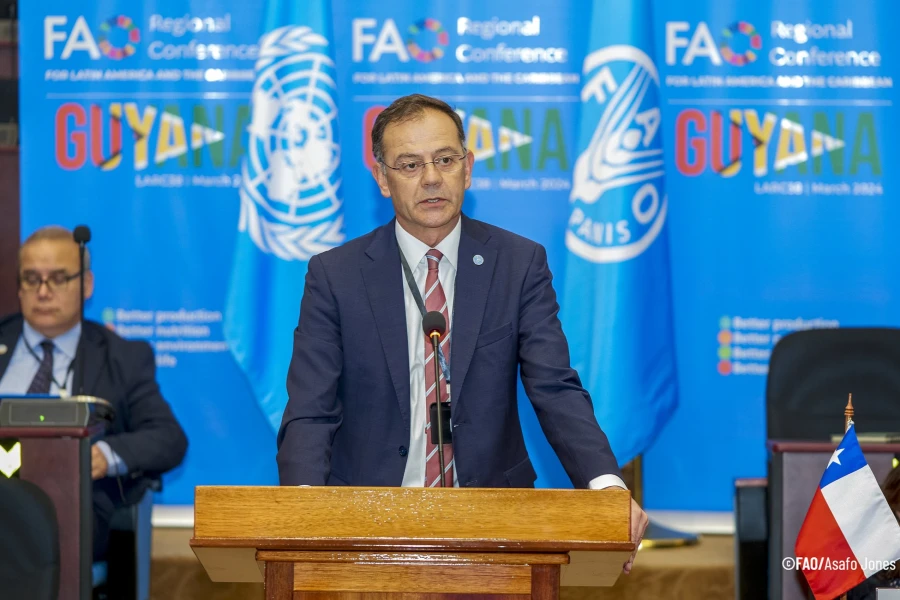Tackling Food Insecurity in LatAm: Leaders Convene at FAO Regional Conference in Guyana

In a gathering marked by sober reflections and urgent calls for action, the Ministerial Segment of the 38th Session of the Food and Agriculture Organization (FAO) Regional Conference for Latin America and the Caribbean commenced in Guyana. The event brought together leaders and stakeholders from across the region to address pressing challenges confronting food security, nutrition, and agrifood systems.
Highlighting the pivotal role of Latin America and the Caribbean in global food security, QU Dongyu, Director-General of FAO, underscored key objectives including protecting the most vulnerable populations, reducing inequalities, and enhancing market access. With the region contributing significantly to global food production and trade, comprising 13 percent of the former and 45 percent of the latter, the stakes for its agrifood systems are immense.
However, despite being a net food exporter, the region’s reliance on commodity trade exposes it to macroeconomic fluctuations, geopolitical tensions, and the impacts of climate change. These factors, in turn, threaten food prices, incomes, and ultimately, food security and nutrition outcomes.
The COVID-19 pandemic exacerbated existing challenges, leading to a rise in undernourishment in certain subregions. FAO’s latest estimates reveal that while progress has been made in South America, with undernourishment decreasing from 7.0 percent to 6.1 percent, Mesoamerica has seen marginal changes, and the Caribbean witnessed an alarming rise from 14.7 percent to 16.3 percent.
Don’t miss out! Subscribe to our newsletter for the latest content straight to your inbox, or register for FREE to gain full access.
President of Guyana, Mohamed Irfaan Ali, stressed the imperative of building resilient and climate-protected agrifood systems. He emphasized the need for data-driven decision-making and a renewed focus on nutrition, advocating for a return to traditional, locally sourced foods.
Zulfikar Mustapha, Guyana’s Minister of Agriculture and Chairperson of the Regional Conference, highlighted progress in key initiatives within his country, such as bolstering animal protein production and fostering entrepreneurial opportunities for youth, underlining a commitment to regional agrifood trade integration.
Addressing the need for multilateral approaches, Director-General Qu emphasized FAO’s efforts to mitigate the impact of price shocks and supply chain disruptions, particularly crucial for vulnerable populations. He also called for strengthened partnerships and highlighted FAO’s support for initiatives like the proposed G20 Task Force for the Global Alliance Against Hunger and Poverty.
The Regional Conference aims to advance discussions on crucial topics, including fisheries and aquaculture, trade strategies to combat hunger, and addressing the interconnected challenges of water, forests, biodiversity, and soil in the context of climate change. Special events will delve into leveraging science and digital innovation for family farming, agrifood system transformation in Small Island Developing States, and investment targeting through FAO’s Hand in Hand Initiative.
Central to the discussions are four interconnected regional priorities aligned with FAO’s Strategic Framework 2022-31: better production, nutrition, environment, and life. These priorities seek to catalyze the transformation of agrifood systems by enhancing efficiency, inclusivity, sustainability, and resilience, leaving no one behind.
As the Ministerial Segment unfolds, leaders are tasked with forging tangible solutions and commitments to address the complex challenges facing Latin America and the Caribbean’s agrifood systems, underscoring the urgency of collective action in achieving sustainable development goals and ensuring food security for all.
(image: FAO)


Responses